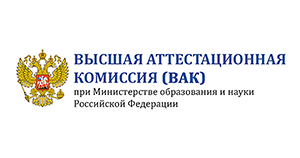|
Перейти
на сайт журнала "Врач" |
Перейти на сайт журнала "Медицинская сестра"
|
Перейти на сайт журнала "Фармация"
|
Перейти на сайт журнала "Молекулярная медицина"
|
Перейти на сайт журнала "Вопросы биологической, медицинской и фармацевтической химии"
|
Журнал включен в российские и международные библиотечные и реферативные базы данных
|
ВАК (Россия)
|
РИНЦ (Россия)
|
Эко-Вектор (Россия)
|
PEPTIDE THERAPY IN CLINICAL PHARMACOLOGY: CURRENT STATE AND PROMISING DIRECTIONS OF DEVELOPMENT
DOI: https://doi.org/10.29296/25877313-2022-02-01
Issue:
2
Year:
2022
Abstract: Insulin therapy initiated the use of peptides in incurable diseases at the beginning of the 20th century. Over time, peptide science has evolved in sync with other scientific discoveries and has finally expanded its view beyond the traditional focus on human endogenous peptides to re-veal a broader range of peptide agents identified from other resources or through medicinal chemistry. The article is a literary review of publications in the Russian scientific electronic library eLIBRARY and in the PubMed library of the USA National Center for Biotechnology Information (NCBI). As a result of the analysis, the formulation of peptide therapy, the current state of the development of peptide therapy, the strengths and weaknesses of peptides as drugs, and emerging new opportunities in the design and development of peptide drugs are outlined.
Keywords:
peptide therapy
peptides
peptides penetrating into the cell
epigenetic regulation
References:
- Lau J.L., Dunn M.K. Therapeutic peptides: Historical perspectives, current development trends, and future directions. Bioorganic & Medicinal Chemistry. 2018; 26(10): 2700–2701.
- Davenport A.P., Scully C.C.G., de Graaf. C., Brown A.J. H., Maguire J.J. Advances in therapeutic peptides targeting G protein-coupled receptors. Nature Reviews Drug Discovery. 2020; 19: 389–391.
- Zhang Y., Zhang H., Ghosh D., Williams III R.O. Just How Preva-lent are Peptide Therapeutic Products? A Critical Review. Interna-tional Journal of Pharmaceutics. 2020; 587: 119491.
- Sato A.K., Viswanathan M., Kent R.B. et al. Therapeutic peptides: technological advances driving peptides into development. Current Opinion in Biotechnology. 2006; 17(6): 638.
- Craik D. J., Fairlie D. P., Liras S., Price D. The Future of Peptide-based Drugs. Chemical Biology & Drug Design. 2012; 81(1): 137–139.
- Ghosh D., Peng X., Leal J., Mohanty R. Peptides as drug delivery vehicles across biological barriers. Journal of pharmaceutical inves-tigation. 2018; 48: 89–111.
- Góngora-Benítez M., Tulla-Puche J., Albericio F. Multifaceted Roles of Disulfide Bonds. Peptides as Therapeutics. Chemical Re-views. 2014; 114: 901–926.
- Padhi A., Sengupta M., Sengupta S., Roehm K. H., Sonawane A. Antimicrobial peptides and proteins in mycobacterial therapy: Cur-rent status and future prospects. Tuberculosis. 2014; 94(4): 363–373.
- Kaspar A.A., Reichert J.M. Future directions for peptide therapeu-tics development. Drug Discovery Today. 2013; 18(17): 807–817.
- Aldous A. R., Dong J. Z. Personalized neoantigen vaccines: A new approach to cancer immunotherapy. Bioorganic & Medicinal Chem-istry. 2018; 26(10): 2842–2849.
- Diao L., Meibohm B. Pharmacokinetics and Pharmacokinetic-Pharmacodynamic Correlations of Therapeutic Peptides. Clinical Pharmacokinetics. 2013; 52(10): 856.
- Drucker D.J. Advances in oral peptide therapeutics. Nat Rev Drug Discov. 2020; 19: 278.
- Fosgerau K., Hoffmann T. Peptide therapeutics: current status and future directions. Drug Discovery Today. 2015; 20(1): 122–128.
- Habault J., Poyet J-L. Recent Advances in Cell Penetrating Peptide-Based Anticancer Therapies. Molecules. 2019; 24(5): 927.
- Хавинсон В.Х., Соловьев А.Ю., Тарновская С.И., Линькова Н.С. Механизм биологической активности коротких пептидов: проникновение в клетку и эпигенетическая регуляция экспрес-сии генов. Успехи современной биологии. 2013; 133(3): 310–316 (Havinson V.H., Solov’ev A.Ju., Tarnovskaja S.I., Lin’kova N.S. Mehanizm biologicheskoj aktivnosti korotkih peptidov: proniknovenie v kletku i jepigeneticheskaja reguljacija jekspressii genov. Uspehi sovremennoj biologii. 2013; 133(3): 310–316).
- Henninot A., Collins J.C., Nuss J.M. The Current State of Peptide Drug Discovery: Back to the Future? Journal of Medicinal Chemis-try. 2017; 61(4): 1382–1414.
- Бабина С.А., Желтышева А.Ю., Шуклин Г.О. и др. Лекар-ственные средства на основе пептидов: применение, технологии получения. Международный студенческий научный вестник. 2019; 3–21 (Babina S.A., Zheltysheva A.Ju., Shuklin G.O. i dr. Lekarstvennye sredstva na osnove peptidov: primenenie, tehnologii poluchenija. Mezhdunarod-nyj studencheskij nauchnyj vestnik. 2019; 3–21).
- Петров В.И., Шишиморов И.Н., Магницкая О.В., Толкачев Б.Е. Персонализированная медицина: эволюция методологии и проблемы практического внедрения. Вестник Волгоградского государственного медицинского университета. 2016; 57: 1–11 (Petrov V.I., Shishimorov I.N., Magnickaya O.V., Tolkachev B.E. Personalizirovannaya medicina: evolyuciya metodologii i problemy prakticheskogo vnedreniya. Vestnik Volgogradskogo gosudarstvennogo medicinskogo universiteta. 2016; 57: 1–11).








